Welcoming the Trout to Tempe Town Lake
In this activity, students will watch a video about trout stocking and answer questions.

By completing this activity, your students will be able to:
- Identify the stages of a fish’s life cycle.
- Explain why fish are being stocked into Tempe Town Lake and why they need to be repeatedly stocked.
- Analyze the different considerations that must be made before releasing fish into a lake.
AND ANSWER THESE CRITICAL THINKING QUESTIONS:
- Many of these fish were raised from eggs at a fish hatchery. What phase of their life cycle are they releasing them into the lake? Why do you think they chose that phase?
- What considerations need to be made about the habitat before these fish can be released into the lake? What impact might they have on other animals and plants?
- Why do you think the fish need to be continually restocked into this lake?
More About this Lesson Plan
The Arizona Game and Fish Department produces an Emmy-winning television show called Arizona Wildlife Views. Individual segments from this show are made available to stream for free on YouTube. In an attempt to make these videos more classroom-friendly, we have reviewed a number of these video clips to provide useful information and strategies for bringing them into the classroom. This includes questions that can be discussed during and after the video has been watched as a class.
This specific video shows the beginning of the winter trout stocking at Tempe Town Lake. It includes the actual stocking of rainbow trout from the Page Springs hatchery and an explanation of the community fishing program in the towns and cities in Arizona.
POTENTIAL DISCUSSION QUESTIONS
- Who is responsible for stocking the fish into Tempe Town Lake? (Pause at 0:25 to discuss)
- From which hatchery do the fish come? How many fish are they putting into the lake? (Pause at 1:00 to discuss)
- Describe how the fish were put into the lake? (Pause at 1:45 to discuss)
- Were licenses or fishing poles required to fish that day? Why or why not? (Pause at 2:22 to discuss)
Standards Correlation
This lesson has been correlated to the following Arizona Department of Education academic standards:
Education through AZGFD
See resources for teachers, including lesson plans. Learn about hunter education, and classes to earn bonus points.
teacher resources
The goal of the AZGFD education program is to promote awareness, appreciation and stewardship of the state’s wildlife resources by using wildlife as a context for learning.
hunter education for bonus points
Classroom and online instruction, and field days for hunter education. Online “Ethically Hunting Arizona” class allows hunters to earn a lifetime bonus point.
